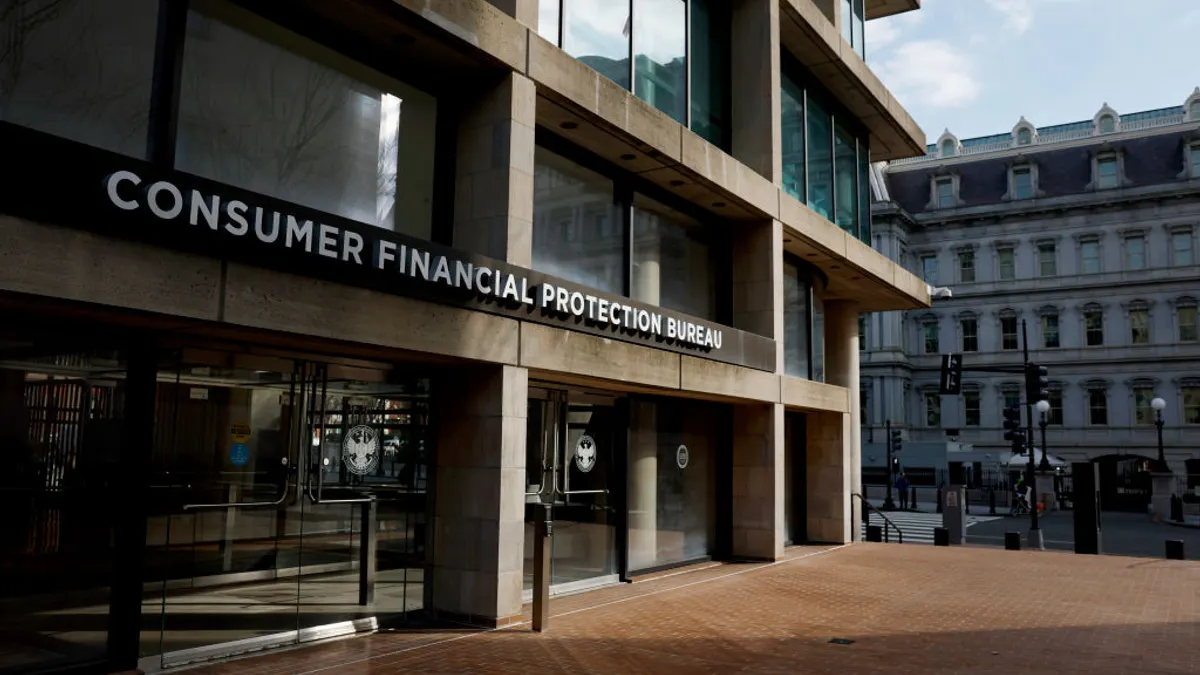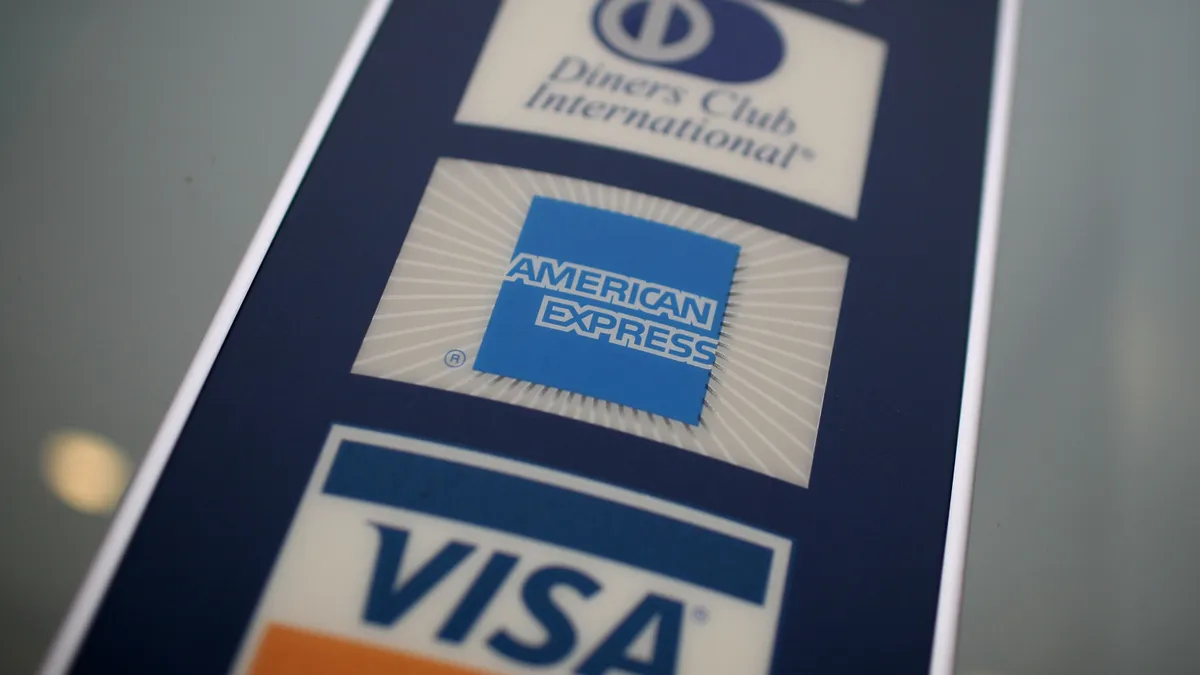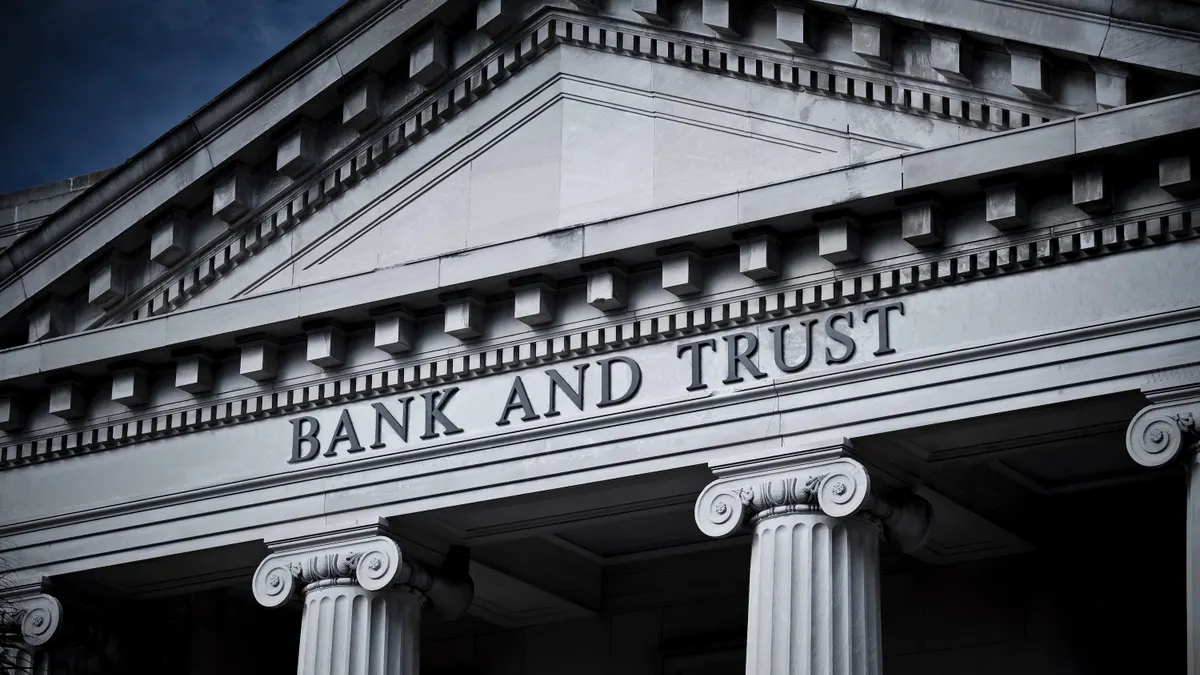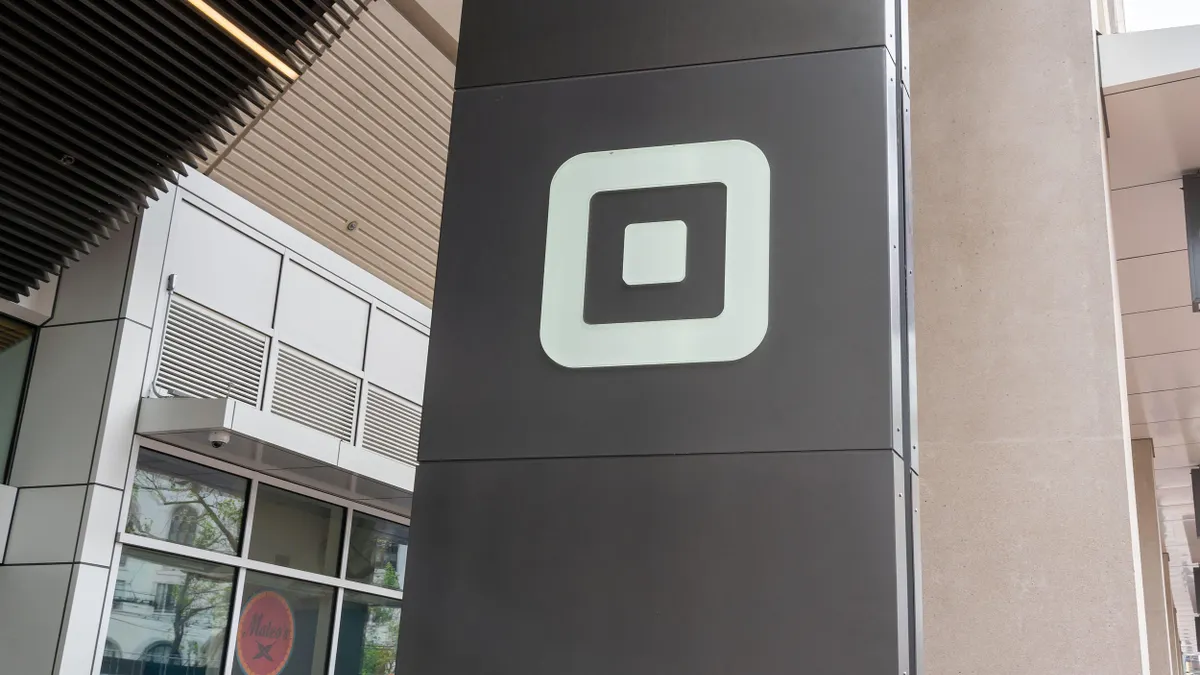The Consumer Financial Protection Bureau has terminated consent orders against U.S. Bank and Apple, according to court documents published Monday.
The bureau, in each case, is ending periods of enhanced compliance and cooperation years ahead of schedule.
The CFPB in December 2023 had ordered U.S. Bank to pay $20.7 million after it froze the unemployment benefits of ReliaCard holders, forcing the customers – in the summer of 2020, amid the COVID-19 pandemic – to verify their identities to unfreeze their accounts.
The bank, at the time of the penalty, defended its actions, saying the freeze stemmed from an anti-fraud measure the Minneapolis-based lender put in place after seeing a 40-fold increase in state-based unemployment benefits that needed distribution.
“While a small portion of cardholders were affected due to extended holds, we prevented fraud of over $375 million and returned to the states hundreds of millions in additional funds sent to questionable accounts,” a spokesperson for U.S. Bank said in 2023. “This saved taxpayers from significant losses … We remain committed to serving our state agency clients and their customers.”
The CFPB, then under Biden-era Director Rohit Chopra, argued that, in some cases, U.S. Bank failed to provide consumers with provisional credits even after they reported unauthorized transfers from their accounts.
The bureau, now led by Acting Director Russ Vought, said in its most recent court filing that U.S. Bank “has fulfilled certain obligations under the order,” including paying the $15 million civil money penalty, making required redress payments, “and taking steps to implement injunctive relief to prevent future violations.”
“The Bureau also waives any alleged noncompliance therewith,” Vought wrote in the filing, dated Thursday.
The filing does not mention a separate $15 million penalty U.S. Bank received from the Office of the Comptroller of the Currency in the same case.
The CFPB order initially came with a five-year enhanced compliance and cooperation period, which the bureau is waiving more than three years ahead of time.
In a separate filing Monday, the CFPB terminated a consent order it issued against Apple in October 2024, alleging the tech giant failed to send thousands of Apple Card consumer disputes to partner bank Goldman Sachs.
Apple received the lighter penalty of the two companies, though. The CFPB asserted that Goldman failed to properly investigate the disputes it did receive.
As with the U.S. Bank filing, the CFPB cited Apple’s payment of a $25 million penalty as reasoning behind ending the enforcement action more than four years ahead of the compliance and cooperation period and waiving any “alleged noncompliance.”
A search of CFPB paperwork linked to Goldman’s penalty in the case indicates that enforcement action is still open.
Goldman was ordered last year to pay at least $19.8 million in redress and a $45 million civil money penalty. The CFPB also banned the bank from launching another credit card “unless it can provide a credible plan that the product will actually comply with the law,” the bureau said at the time.
Apple and Goldman have each reportedly sought to end the Apple Card partnership since as early as 2023.
Goldman CEO David Solomon noted in January that his bank’s contract with Apple runs through 2030, but “there’s some possibility that it won’t continue until that time frame.”
Apple and Goldman launched the Apple Card in August 2019 despite third-party warnings that the program’s disputes system was not ready because of known technological issues, the CFPB wrote in announcing last year’s penalties.
Goldman’s board of directors learned of shortcomings with the disputes system four days before the card was to launch, the bureau said. However, the rollout went ahead as scheduled – at least in part because Apple could charge Goldman $25 million for each 90-day delay to the product’s debut, the CFPB said.
Issues with the disputes process led consumers to face long waits to get their money back and, in some cases, incorrect negative information was added to some users’ credit reports, the bureau said.
Months after launch, Apple and Goldman introduced a monthly installment feature, which allowed users to finance their new Apple purchases, interest-free. But the firms did not automatically enroll customers in the program and continued charging them interest, the CFPB said.
In some cases, the interest-free option only appeared when online consumers bought products using Apple’s web browser, the bureau said.
“We found that if consumers were not using the Safari browser or were using a Safari browser in privacy mode, the option did not come up at checkout,” Eric Halperin, the CFPB’s then-enforcement director, told reporters at the time.
An Apple spokesperson last year said the company “strongly disagrees[s] with the CFPB’s characterization of Apple’s conduct.”
“Upon learning about these inadvertent issues years ago, Apple worked closely with Goldman Sachs to quickly address them and help impacted customers,” the spokesperson said, adding that they “look forward to continuing to deliver a great experience for our Apple Card customers.”
The Apple and U.S. Bank orders are hardly the first the CFPB has terminated early under Vought. The regulator freed Bank of America in June from a 2023 mortgage data-related enforcement action. Then in July, it terminated an overdraft fee-related order against Navy Federal Credit Union. The bureau, in coordination with the Justice Department, also sought in May to terminate a 2021 consent order against Trustmark over allegations the Jackson, Mississippi-based bank engaged in redlining in the mid-2010s.






















